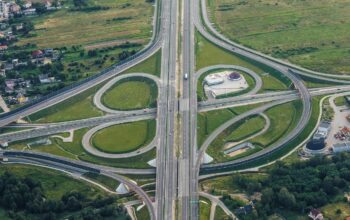How Artificial Intelligence is Revolutionizing the Automobile Industry
Imagine stepping into a car that not only drives itself but also learns your preferences, ensures safety with advanced sensors, and updates software seamlessly over the air. Welcome to the world of Artificial Intelligence (AI) in automobiles, where technology is transforming the way we travel.
1. Alibaba’s Leap into AI-Driven Cars
Alibaba has been making significant strides in integrating AI into the automotive sector. Recently, it collaborated with electric vehicle (EV) manufacturer Nio and BMW to bring advanced AI functionalities into cars. For instance, Nio will use Alibaba’s large language models to enhance AI-powered conversations within their smart cockpits. This collaboration highlights the commercial potential of AI in enhancing vehicle safety and user experience.
2. Nissan’s ProPILOT Technology
Nissan is set to unveil its next-generation ProPILOT, an advanced self-driving technology aimed at enhancing safety and automation by FY27. This technology represents a major leap in autonomous driving, making vehicles safer and more reliable.
3. Rise of Autonomous Vehicles
The rise of autonomous vehicles is transforming the car industry. By 2030, more than 30% of new vehicles are expected to have some level of autonomous driving capability, driven by consumer demand and regulatory requirements. AI plays a crucial role in this shift, enabling self-driving cars to navigate through challenging environments with precision.
4. AI and Sustainable Urban Mobility
AI is not only transforming vehicle technology but also sustainable urban mobility. It helps manufacturers design low-carbon vehicles by optimizing materials, suppliers, and production locations. This approach reduces emissions while increasing the efficiency of the automotive industry.
5. The Future of Automotive Software
Software is increasingly becoming a vital component of vehicles. Currently making up about 2% of a car’s total value, software is expected to reach 4-5% by 2030. This growth is driven by the need for over-the-air updates and the integration of AI into vehicles, making them more connected and intelligent.
The future of automobiles is clearly intertwined with AI. Whether it’s through smart vehicle systems, autonomous driving, or sustainable manufacturing processes, AI is redefining the boundaries of what cars can do and how they are made,
References:
- https://www.globenewswire.com/news-release/2025/04/16/3062674/0/en/Automotive-Artificial-Intelligence-Market-Size-to-Surpass-USD-24-29-Billion-by-2032-Owing-to-Surge-in-Autonomous-Vehicle-Integration-and-Smart-Mobility-Solutions-SNS-Insider.html
- https://www.scmp.com/tech/big-tech/article/3306468/alibaba-steps-ai-adoption-auto-industry-nio-bmw-deals
- https://economictimes.com/industry/auto/auto-news/nissan-to-launch-advanced-self-driving-technology-pro-pilot-by-fy27/amp_articleshow/120336296.cms
- https://thecsruniverse.com/articles/ai-and-advanced-manufacturing-driving-sustainable-urban-mobility-and-emission-reduction-in-the-automobile-industry
- https://auto.economictimes.indiatimes.com/news/auto-technology/smart-tech-self-driving-safety-features-to-dominate-auto-industry-by-2030-niti-aayog-report/120428595
- https://hai-production.s3.amazonaws.com/files/hai_ai_index_report_2025.pdf
- https://www.tpointtech.com/artificial-intelligence-in-self-driving-cars
- https://execsintheknow.com/magazines/april-2025-issue/the-customer-experience-cliff-how-to-reach-the-peak-without-falling-off/



